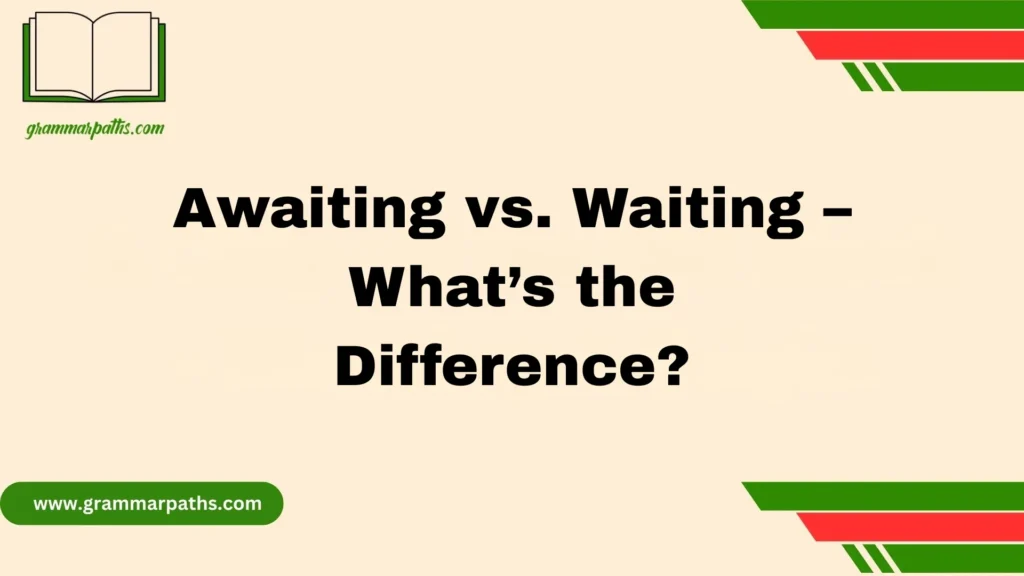The phrase “the pot calling the kettle black” is a timeless idiom used to point out hypocrisy. It describes a situation where someone criticizes another person for a fault that they themselves also have. For example, if a liar calls someone else dishonest, that’s a classic case of the pot accusing the kettle. This colorful expression has been a part of English language for centuries, often used in literature, conversations, and moral lessons.
The origin of the phrase dates back to the early 17th century, when both pots and kettles were made of cast iron and used over open flames, turning their surfaces equally blackened with soot. The earliest known printed version appears in Thomas Shelton’s translation of Don Quixote (1620), where it carried the same figurative meaning we use today. Over time, this saying became a proverb symbolizing the irony of blaming others for faults one shares.
In modern usage, “the pot calling the kettle black” remains relevant in politics, relationships, and everyday disputes. It’s a reminder to reflect on our own flaws before passing judgment on others, making it a staple of both ethical discussions and witty rhetorical arguments.
What “The Pot Calling the Kettle Black” Really Means
At its core, this idiom paints hypocrisy in vivid detail. In simple terms:
- Definition: It refers to someone criticizing another for a fault they also possess.
- Core Idea: It’s a sharp way to highlight hypocrisy.
- Contrast: Irony’s playful; hypocrisy cuts deeper.
You might say, “He’s always late, but he’s the worst critic of tardiness”—that’s pot meets kettle. The phrase packs a visual punch that plain words like “hypocrite” don’t deliver.
The Origin of the Phrase
Let’s time-travel to the roots of the saying. We’re talking before central heating and dishwasher soap existed.
- In old kitchens, pots and kettles made of cast iron turned black with soot after long use. That’s literal—not poetic yet.
- Miguel de Cervantes’ Don Quixote (early 1600s) hints at this metaphor. Critics suggest it’s one of the earliest nods to the idea of pots and kettles pointing fingers.
- By the 18th century in England, the phrase became more figurative—a staple in moral lessons and remedies for self-awareness.
A famous version states:
“… to call the frying-pan black, when yourself are burnt like it.”
That line moves from household image to household lesson.
Evolution: From Blackened Kitchenware to Universal Metaphor
How did we move from mazey kitchens to deep metaphors?
- Literal to figurative shift: Over time, the phrase jumped from describing dirty pans to describing dirty intentions.
- Illustrations helped: Charles H. Bennett’s cartoons (mid-1800s) visually cemented the phrase, often depicting anthropomorphic pots and kettles in ironic confrontations. His sketches turned metaphor into memes—long before the internet.
- Spread through proverbs: It joined other sayings like “physician, heal thyself” and “don’t throw stones at glass houses.”
The path went from pragmatic kitchens to sly pointers about human nature—and it’s stuck.
How the Idiom Fits into Language and Culture
Idioms do more than decorate language. They carry weight, culture, humor.
- Metaphors stick because visual stories tap memory more than bland descriptions. Picture a sooty kettle lecturing a pan—that image stays.
- Cultural values ride on them. In Western culture, hypocrisy is a no-go. This saying scolds gently, using humor instead of anger.
- Let’s compare a few cross-cultural variants:
| Language | Equivalent Idiom | Nuance |
| French | “C’est l’hôpital qui se moque de la charité” | Hospital mocking charity; same hypocrisy |
| Spanish | “El que llama al otro ojolargo” | “Big-eyed one”—points a flaw similar in kind |
| Chinese (Mand.) | “五十步笑百步” (50 steps laugh at 100) | Both fleeing; one just got farther |
Humans around the globe spot hypocrisy—and have comedic ways to say so.
The Psychology Behind the Saying
Here’s where things get juicy. Why do we point fingers when guilt lurks in our own back pocket?
Psychological Projection
When we see a flaw in others, we sometimes blame them to hide our faults. Psychology calls that projection. For example, a procrastinator may berate someone else for being late. The motives? Deflection, protection, self-defense.
Tu Quoque Fallacy
“Tu quoque” means “you too.” It’s a logical fallacy: dismissing criticism by pointing out that critic’s own problems. Example in courtrooms:
- Defense: “Yes, I lied to protect us. But you’ve posted fake news!” That doesn’t absolve the original lie—it just tries to muddy accountability.
Whether in casual chats or dramas, these tactics weigh down healthy discussion.
Real-Life Examples of “The Pot Calling the Kettle Black”
Let’s shine a light on hypocrisy—real and vivid.
Everyday Moments
- Workplace: A manager admonishes team punctuality yet shows up late consistently. It erodes respect.
- Friendships: Someone who gossips about others accuses you of being a “busybody.” That’s irony wearing fancy shoes.
Political Stage
- Politician A blasts Politician B for ethics violations—while secretly under ethics investigation. The media love this. It highlights hypocrisy with headlines like “The Butcher Calls the Slayer Unethical.”
Biblical Case Study
In Matthew 7:3-5, Jesus says, “Why do you see the speck in your brother’s eye but fail to notice the beam in your own?” It’s the same roast in a spiritual wrapping.
Pop Culture
- In Mean Girls, Regina accuses Cady of being “a freak and a poser” while she’s wearing the exact same outfit. Classic kettle and pot banter.
- Sitcoms like The Office often spin scenes where characters accuse others of traits they share. Jim mocking Dwight’s micromanaging while ignoring keyboard-clicking under scrutiny? Perfect pot-kettle moment.
Social Media Buzz
- Someone calls out “hyperconsumers” while showcasing a personal #haul video. Ouch—that mirror moment goes viral fast.
Across arenas—political, personal, comedic—the phrase keeps flipping the script on hypocrisy.
Similar Idioms and Expressions Around the World
Let’s widen our lens. We just skimmed earlier, so here’s a quick dive:
- English: “People in glass houses shouldn’t throw stones.” You ridicule others at your own peril.
- German: “Wer im Glashaus sitzt, soll nicht mit Steinen werfen.” (Same as above.)
- Arabic: “اللي جاب ريحة ما يجيب ريحة”—“One who brings smell shouldn’t bring smell.” Sort of “Don’t bring your own stench to judge others.”
- Russian: “Своя рубашка ближе к телу” (“One’s own shirt is closer to the body”). Not exactly flouting hypocrisy, but emphasizes bias.
Notice how folkloric wisdom transcends language—it makes humanity’s quirks universal.
Why We Miss Our Own Hypocrisy
You see it in others first. Why?
- Self-serving bias: We naturally believe we’re better than average—until evidence says otherwise.
- Selective perception: We curate what we notice. If someone else screws up and we relatedly do too, we only see their mistake.
- Ego defense: Acknowledging hypocrisy threatens self-image. It jars. Best to push it away.
- And once a flaw goes public—say on social media—magnification sets in. Suddenly your momentary slip becomes a mini scandal.
Awareness fights this, but it’s a habit—not overnight fix.
How to Avoid the “Pot Calling the Kettle Black” Trap
Stay honest. Here’s how:
- Pause before you criticize. Reflect: Am I also guilty? If yes, address yourself first.
- Use “I” statements. Instead of “You’re judgmental,” say “I feel criticized when…” That defuses defensiveness.
- Call flaws constructively. Pointing out hypocrisy can prompt growth—if done with empathy, not accusation.
- Lead by example. Make amends or clarify when confronted. Admit, “Yeah, I’ve done that—thanks for flagging it.”
Here’s a quick comparison table:
| Bad Approach | Better Alternative |
| “You’re always late.” | “I’ve noticed I’ve been late too—can we improve?” |
| “Stop being hypocritical.” | “I catch myself doing that too—how can we handle it?” |
| Public shaming on social media. | Private conversation with honesty and care. |
Mindfulness trumps hypocrisy—every time.
Conclusion
The phrase “the pot calling the kettle black” is more than just a witty remark—it’s a sharp reminder of self-awareness and humility. Rooted in the imagery of cast iron cookware darkened by soot, its meaning has endured for centuries as a symbol of hypocrisy. Whether in casual conversation or serious debates, this idiom challenges us to look inward before casting judgment on others. By understanding its history and usage, we not only enrich our vocabulary but also embrace the timeless lesson it teaches: before pointing out someone else’s flaws, check if you share the same ones.
FAQs
1. What does “the pot calling the kettle black” mean?
It means criticizing someone for a fault that you also have, often highlighting hypocrisy.
2. Where did the phrase originate?
It dates back to the 17th century, first appearing in Thomas Shelton’s translation of Don Quixote (1620).
3. Is the phrase still used today?
Yes, it’s common in modern English to point out irony or double standards.
4. Can this idiom be used in formal writing?
Yes, but it’s best suited for rhetorical, literary, or conversational contexts.
5. What’s a synonym for this phrase?
“Look who’s talking” or “people in glass houses shouldn’t throw stones” carry similar meanings.

Grace Marie is the dedicated writer behind GrammarPaths.com, where she shares her passion for English grammar, idioms, and writing mastery. With a strong background in language studies and years of experience helping learners improve their communication skills, Grace creates clear, practical, and engaging content that makes English easy to understand.










